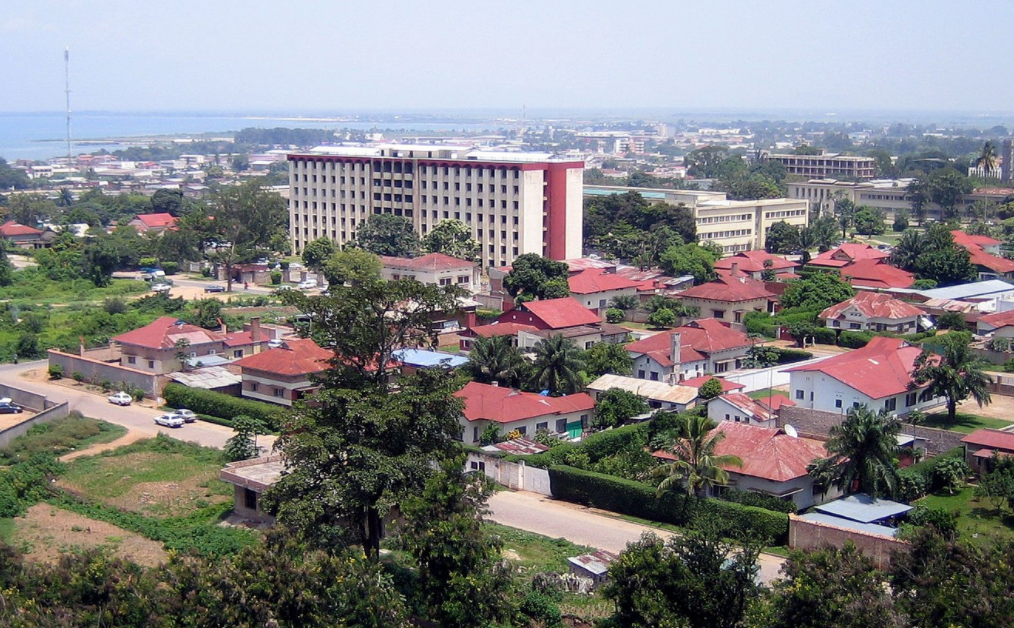Mali (August 2020 and May 2021), Guinea Conakry (September 2021), Burkina Faso (January 2022)... in less than two years, four West African Presidents have been overthrown by the military. In February 2022, an attempted coup ended in failure in Guinea-Bissau. The domino effect is almost obvious, the cyclical and deep reasons are less so, but are there, behind these remakes which turn into a phenomenon. Explanations and analysis.
Observers are scrutinizing, moreover, with great interest the sequence with which this part of the African continent has returned to military coups, after a period of calm.
Anadolu Agency (AA) surveyed some of them. They point the finger, among other things, at the failure of public policies, electoral corruption, the rise of violent extremism and a posture of populations to turn to new partners.
Go back in history
Paz Hien, Burkinabè jurist and political analyst believes, in an interview with AA, that to understand this recurrence of coups d’etat in West Africa, we must go back in the history of relations between the African continent and the rest of the world.
Hien, moreover, executive director of the Center for Research and Studies on Deontology, Ethics and Corruption for the Effectiveness of Human Rights (CREDEC/EDH), points out that since the independence of African countries until the end of the cold war with the fall of the bloc of the USSR, we had witnessed a series of coups d’etat in Africa, in the aftermath of the second world war. “Immediately after that, the various allies found themselves confronting each other, in particular the Eastern bloc and the Western bloc. The influences of each other were also reflected in Africa,” he said. .
According to him, this situation will give rise to two camps at the head of African states. While one side was closer to Russia, the other leaned toward certain Western forces. “And we have seen a series of coups. After the fall of the former USSR bloc, we felt a certain lull until recently from 2010 with the return of Russia to the political scene. in Africa”.
The failure of public policies
Hien believes that the current resurgence of coups in West Africa can be explained by the fact that “the ground is fertile for this”. “We realize that there are a certain number of problems, in particular the security question which favored the breeding ground for these coups d’etat, because most of these States which came closer – at a given moment – to the ‘West can no longer guarantee security to their populations’.
“Different governments are failing with a meteoric rise in violent extremism,” he said. “And France, the main state that has intervened alongside the countries of the sub-region to try to restore security, has not been able to achieve concrete results for more than ten years,” he added.
“So today, the people are exasperated and the military are taking advantage of this situation to return to power and legitimize themselves because currently, the coups we are witnessing – Mali, Guinea, Burkina Faso – are coups which have been legitimized. The peoples applauded because, at some point, the old regimes had shown their limits”, he explained.
He notes that today, most of those African states that have recorded coups d’etat tend to approach Russia “which seems to be more effective” in the fight against insecurity, stressing that “we can analyze coups d’etat from the angle of the confrontation of the great powers on African soil, and the failure of African public policies, whether political parties or governments”.
People need concrete actions
Dr Poussi Sawadogo, diplomat, teacher-researcher at the Free University of Burkina (ULB) and training adviser at the Institute for the support of diplomatic and international careers (IACDI), joined by the Anadolu Agency, considers, for his hand, that the advent of coups in West Africa, namely in Mali, Guinea and Burkina Faso can be explained by “unsatisfactory post-electoral governance characterized by corruption, nepotism and rampant insecurity”.
For good reason, he said, political actors, including elected presidents and members of governments are struggling to meet people’s expectations in terms of accountability, transparency, participation and inclusion.
Taking the example of Burkina Faso, he recalls that since 2016, the political program of President Kaboré and his governments has been “the pure and simple accusation of President Blaise Compaoré while amplifying the defects of the former power which moreover manufactured”.
“The populations have concrete needs that cannot be resolved with demagogy and fratricidal hatred. The inability of the Kaboré government to bring peace was the major element that prevailed on January 24, 2022. Faced with more 2,000 dead and nearly 2 million internally displaced people, it was intolerable to accept the danger without reacting, especially on the side of the army, which lacked the minimum to deal with terrorism,” he said.
He stresses that with the support of the international community, the countries of West Africa which have experienced coups d’etat can rebuild themselves and become “respectable” democracies because basically, the democracies in West seem “incapable” of taking up the necessary security challenges.
“The great powers like the United States, France and Great Britain ended up throwing in the towel in Afghanistan. In Syria, they also ceded the ground to Russia and its allies. The return in force of the regimes must be a questioning in the face of a democracy imposed by the international order which does not adapt well to endogenous African realities”, affirmed Poussi Sawadogo.
For him, instead of favoring a “democracy of concordance”, it is a question of “a democracy of competition” which divides communities and countries, while the destiny of African countries lies in democratic processes adapted to their context beyond the slavish importation of an inoperative system”.
“Africa is at a historic turning point in its democratic evolution”, concluded Poussi Sawadogo.
In the same vein, Paz Hien maintains: “We can say that it is another form of democracy which is being prepared to be able to express itself (…) ECOWAS is showing its limits, there will be also other provisions at the level of international relations. Everyone is unanimous that the future of the world is being played out in Africa”.
Failure of a democratic model
For Danouma Ismaël Traoré, journalist and doctoral student in Political Studies at EHESS Paris, “there is at first the very bankruptcy of the electoral democracy imposed in Africa with the speech of La Baule (Spoken by the former French President, François Mitterrand , June 20, 1990, Ed.) “Almost all the countries of Africa were pushed both by internal pressures which demanded more freedoms and democracy in the 1990s, but also by international pressure to s ‘open up more,’ he said.
For him, the second reason applies especially with the cases of Burkina Faso and Mali. It is the security context with the worsening of the situation and the total bankruptcy of the States.
The third reason is linked, according to him, to putschist tendencies within the African armies which have never faded. “The army has never withdrawn from the political arena in many countries, so forming governments without putting soldiers in the defense or security portfolios is a scandal for some,” he said. -he explains.
“Logically when a soldier wants to engage in politics, he must be able to resign and compete with other citizens on “equal terms”. Traoré said, wondering if these soldiers who come to power will have the legitimacy to lead for many years.
“In Burkina Faso, the military seem, so far, to be wary of the political class and claim to want to set up an apolitical transition. We do not know what this will give. Obviously, there are two possible situations. The first is that soldiers cede power to a civilian regime after a transition, as was the case in Niger and Burkina. The second is that these soldiers decide after a transition from organize elections and stand after having carefully put down the military uniform, at least in form,” he warned.
Reacting to the coup d’etat in Burkina Faso, during a press briefing, the UN Secretary General, Antonio Guterres, affirmed on Tuesday 25 January that “military coups d’etat were unacceptable” adding that “the role of the military should be to defend their country and their people, not to attack their government and fight for power ».
“Much more than a fad, the multiplication of these coups reflects a deep crisis of political systems, disconnected from popular expectations and weighed down by corruption. They remind us of the need to rethink democratic models, beyond the mere electoral moment, but also the effectiveness of the institutions supposed to protect and serve the citizens”, indicates the Institute for Security Studies (ISS), in an article published on its site on October 15, 2021, following a seminar baptized: “Towards a return of coups in Africa?”.
Source Anadolu Agency





























Réagissez à cet article